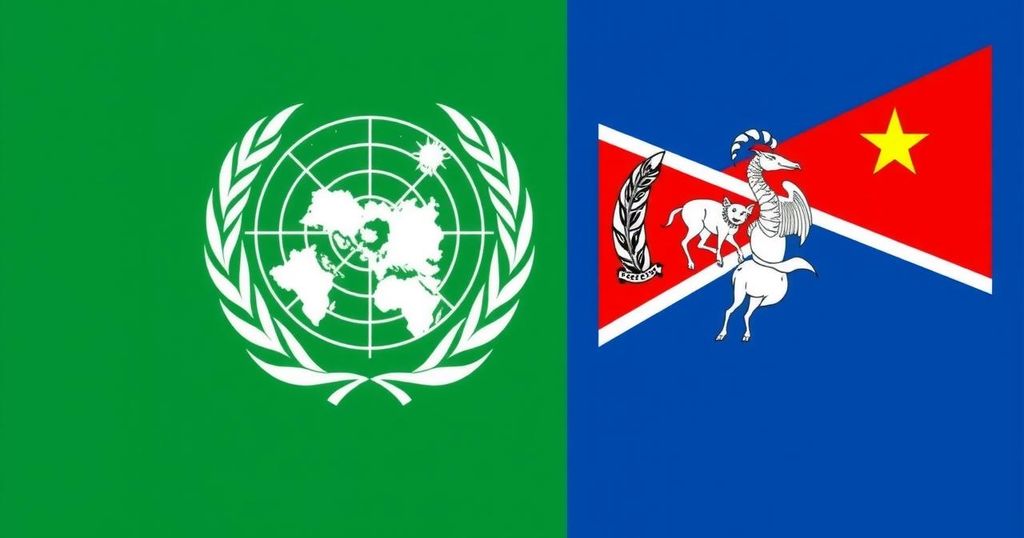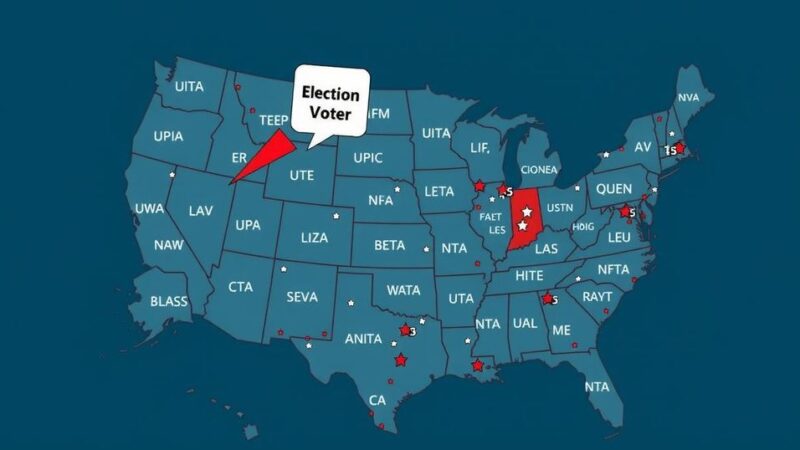Papua New Guinea has announced a boycott of the upcoming COP29 UN climate summit, deeming it a “waste of time” due to unfulfilled promises by polluters. Foreign Minister Justin Tkatchenko criticized the lack of progress and indicated a shift towards bilateral climate agreements with like-minded countries, asserting that smaller nations deserve more recognition and effective action.
Papua New Guinea has announced its intention to boycott the forthcoming UN climate summit, COP29, scheduled for next month in Azerbaijan. The nation has openly criticized these global warming negotiations, labeling them a “waste of time” characterized by empty pledges from major polluters. This stance is particularly significant as it is rare for a government to completely dismiss the leading climate talks organized by the United Nations. In an interview, Foreign Minister Justin Tkatchenko articulated the frustrations of his country, stating, “There’s no point going if we are falling asleep because of jet lag because we’re not getting anything done.” He further emphasized that commitments made by large polluters to finance climate relief often result in funds being allocated to consultants rather than tangible climate action. Papua New Guinea is home to the third-largest rainforest globally, an ecological critical area often referred to as one of the “lungs of the earth.” However, it is also one of the most vulnerable nations to the impacts of climate change, being impoverished and prone to natural disasters. Tkatchenko lamented, “COP is a total waste of time,” indicating a pervasive sentiment of disillusionment with the lack of substantial outcomes from previous negotiations, particularly in light of the significant challenges posed by climate change to smaller island states. Despite the landmark Paris Agreement established at the COP summit in 2015, subsequent gatherings have failed to live up to their promises, largely due to the impression that wealthy nations are inadequately addressing climate issues. Critiques have been raised regarding the bureaucracy surrounding adaptation funds designed to assist developing nations, which have proven ineffective in meeting urgent needs. The call for a boycott is echoed by other nations within the Pacific region, and Papua New Guinea has opted instead to pursue bilateral agreements on climate initiatives, suggesting that negotiations are already underway with countries like Singapore. Tkatchenko asserted, “With like-minded countries like Singapore, we can do 100 times more than COP,” reflecting a desire for more meaningful cooperation outside of the UN framework. The decision to withdraw from COP, while bold, underscores a growing frustration among smaller nations that have historically encountered difficulties securing recognition and substantive commitments in global climate discussions.
The article discusses Papua New Guinea’s decision to boycott the upcoming UN climate summit, COP29, highlighting the nation’s disappointment with the effectiveness and outcome of previous climate negotiations. It contextualizes Papua New Guinea’s significance as a major rainforest nation and an environmentally vulnerable area facing severe threats from climate change. The backdrop includes an overview of the challenges faced by developing nations in the climate negotiations, particularly regarding support from larger polluter nations and bureaucratic hurdles in accessing climate adaptation funds. The commentary from Papua New Guinea’s Foreign Minister articulates a broader sentiment prevalent among smaller nations that seek more productive avenues for climate cooperation.
In conclusion, Papua New Guinea’s decision to boycott COP29 reflects deep-seated frustrations with the UN climate negotiation process, which the nation views as ineffective and overly focused on empty rhetoric. By seeking bilateral agreements with countries such as Singapore, Papua New Guinea aims to create substantial progress in combating climate change on its own terms. The boycott may serve as a rallying point for other nations similarly disillusioned by global negotiations, signaling a potential shift toward alternative methods of addressing climate issues.
Original Source: www.voanews.com





